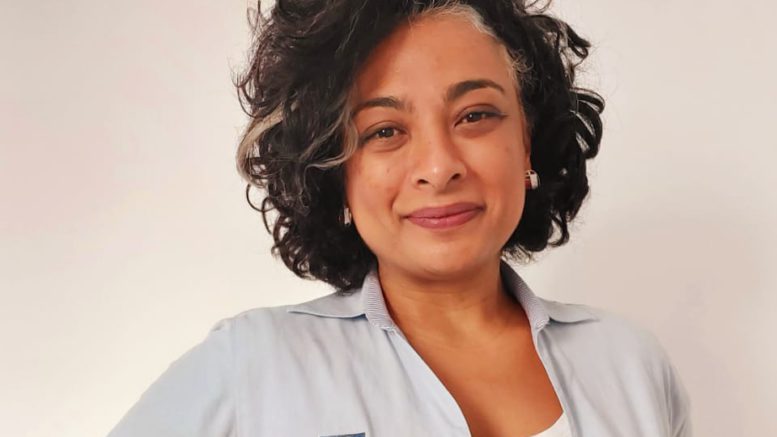“The arrival of digital tools, apps and precision agriculture has changed the way we work and think about the business”
Over the last few decades, society has been changing, the industrial sector is increasingly automated, and the field has not been left behind. 4.0 Agriculture is made up of technological innovations that pressure the job market to adapt and reinvent itself.
Flávia Porto has been with Yara for 3 years and recently assumed the leadership of the Corporate Human Resources area in Brazil.
Porto has a degree in psychology from College UniPaulistana and in business administration from University Santo Amaro. She has a 25-year career in the human resources area in Brazil and abroad.
Yara, with global headquarters in Norway, stands out in Brazil for having a greater share of the fertilizer market. Yara, Mosaic, Fertipar and Heringer hold more than 70% of the fertilizer market in the country.
AgriBrasilis – What is most important in the profile of professionals in agro?
Flávia Porto – Mainly the willingness to learn and undertake. Functional knowledge is easy to develop. It is necessary to start looking at talents much more with the potential and speed of learning than with those who know how to do it or have already done it. It is also important to know the value chain and the different needs of the public that connect to it, as agribusiness goes far beyond the product on the table.
AgriBrasilis – What has changed in the career of agribusiness professionals in recent years, and what will change?
Flávia Porto – With 4.0 industry, the automation of plants and other operations, for example, many professionals had to go through training to be able to face the new scenario. The same happened in the field. The arrival of digital tools, apps, and precision agriculture has changed the way we work and think about the business. Thereby, the common competence of agribusiness is the agility of learning and, with this, creating the future of food. A future, which is not a place, day, month, or year, but a mindset capable of connecting with the needs and challenges that will come. There is no longer any place for the statement “it has always been like this”, even because “always” no longer exists.
Another example of this transformation is the emergence of new positions, such as the role of “digital agronomist” at Yara three or four years ago. This new professional is responsible for gathering all the agronomic knowledge and digitizing it into a system, so that it can be accessed and made available to everyone, a strong characteristic of the “Information Age” in which we live.
AgriBrasilis – Are there any deficient areas in qualified professionals in the market?
Flávia Porto – Although the demand for specialized professionals is continuous (Professionals from Agronomy, Engineering, Geology) the biggest difficulty is precisely to find professionals who easily move between different functional teams and different ways of working on projects, whether agile or traditional.
AgriBrasilis – How are career opportunities at Yara?
Flávia Porto – Career opportunities at Yara are diverse in many ways. The company, in recent years, has been gaining even more strength with a view towards the plurality of gender, race, ethnicity and sexual orientation, besides moving its teams to represent all the diversity existing in Brazil. This has already been put into practice in the 2021 Trainee Program and served as a rule for the accelerated development of professionals with disabilities who participated in the “Inclusion in Action” program in 2020. Last year, we created the Generations community to promote balance between the different people we meet at Yara Brasil. The idea is to value the diversity of our team so that each colleague can contribute with their potential and way of thinking, regardless of age. We believe that this plurality is very rich for the business, as it brings together different experiences and perspectives.
AgriBrasilis – What is your advice for young people who are entering the agricultural labor market?
Flávia Porto – Study about the plurality of Brazilian culture, understand the demographics of the places you visit and what different needs people have. This exercise can be important to train the brain to create solutions adapted to the realities of customers and the entire value chain. A professional can have great ideas, but they need to solve problems existing in the present or future of society.
AgriBrasilis – Agro is often considered conservative. How does Yara deal with new generations and new demands from society?
Flávia Porto – Yara has made a non-negotiable commitment to diversity. The company reinforces the importance of the increasing participation of women and the inclusion of afro-descendants, Professionals with Disabilities (PCDs) and LGBTQIA+ people in national agribusiness with the objective of contributing to the development of this segment, which has historically played a leading role in Brazil’s economic recovery. We believe that different ways of existing and thinking contribute to an innovative environment and connect more quickly to existing challenges in society.
Yara’s global goal is to reach 35% female participation throughout the company by the year 2025. In Brazil, 22% of its workforce is made up of women. And, when looking at leadership positions, 23% of the seats are occupied by them. To bring more diversity to the operation, in March of this year, for example, Yara, in partnership with the Social Service of Industry of Rio Grande do Sul (SESI-RS), promoted a free course for forklift operators (NR -11) in Porto Alegre (RS), exclusively for women, encouraging the participation of the female public also in operational areas. At the Rio Grande unit, the company maintains the Women in Maintenance project, to encourage female participation. With the success, the initiative is now going to other units and, recently, it opened vacancies for the Cubatão Industrial Complex (SP).

